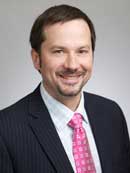 Professor David Ball joined the faculty in 2009. He writes and teaches in the areas of criminal law, criminal procedure, sentencing and corrections.
Professor David Ball joined the faculty in 2009. He writes and teaches in the areas of criminal law, criminal procedure, sentencing and corrections.
1) Why do you write?
I write for a variety of reasons. Sometimes it’s because I have learned something beautiful or interesting that I want to share. Sometimes it’s because I want to be in conversation with other scholars—to respond to something they’ve said or to take what they’ve said and apply it to a novel problem. Sometimes it’s because I want to help solve a problem in the real world. Sometimes it’s to answer a question to which I’ve found unsatisfactory answers—or where I think those answers are wrong. One way to characterize all of these answers is that it’s part of the process of lifelong learning: I learn, that makes me ask different questions, I learn some more, I put my thoughts together, and then I learn from people’s responses to those thoughts.
2) Is there a scholar who most inspires you?
There are too many to name! I’ve learned so much from so many people. The beauty of academic writing, however, is that you can go back through my articles—particularly the footnotes and the author’s notes—and trace the people and the works that have influenced and inspired me.
3) What do you think has been your most impactful work? What impact did it have?
On one level, difference to individual people’s lives, it would have to be Mentally Ill Prisoners in the California Department of Corrections and Rehabilitation: Strategies for Improving Treatment and Reducing Recidivism. It has been downloaded thousands of times, mostly by people with incarcerated relatives who suffer from mental illness. There isn’t a lot of guidance for them.
On another, more systemic level, it would have to be Tough on Crime (on the State’s Dime): How Violent Crime Does Not Drive California Counties’ Incarceration Rates – And Why it Should. In this paper, I examined whether the vast disparity in California counties’ use of the prison system could be explained by differences in county rates of violent crime. While I found a relationship that was, in a narrow (p-value) sense, statistically significant, it was not within the 95 percent confidence interval, and, in any event, it only explained 3 percent of the variance in prison usage. This was important because it debunked the folk wisdom that prison admissions are a function of crime. On a policy level, the paper was influential in reapportioning criminal justice funding in California. After criminal justice realignment, California counties were reimbursed on the rates of their historical prison usage. The ACLU was able to use my analysis and, in concert with other advocates, got the reimbursement formula changed to include rates of violent crime.
4) What work are you most proud of and why?
I’m proud of all my articles, but I might say that the historical ones about the ways in which funding incentives led to the rise of state prisons are two that I’m proudest of. The national story is told in Why State Prisons? The California story is told in “A False Idea of Economy”: Costs, Counties, and the Origins of the California Correctional System.
These are both historical articles, and I was a history major—so that might be part of it. But I think the reason why these articles are important are the same things that inspired me to be a history major in the first place. Our understanding of why things are the way they are now are often wrong. Sometimes we can learn that the system we have is not the only one there is or could be or has been (as I explore in Why State Prisons?) and sometimes we can learn that the problems we think are unique to us were, in fact, problems we’ve tried to deal with before (as in ‘A False Idea of Economy’).
5) What’s your next project?
I’m working on a couple of different projects, but the one that is closest to completion is a paper that looks at the meaning of the phrase “public safety” and how a more expansive definition of it—one that is, in fact, justified by existing law—could help promote more balanced pretrial population management.